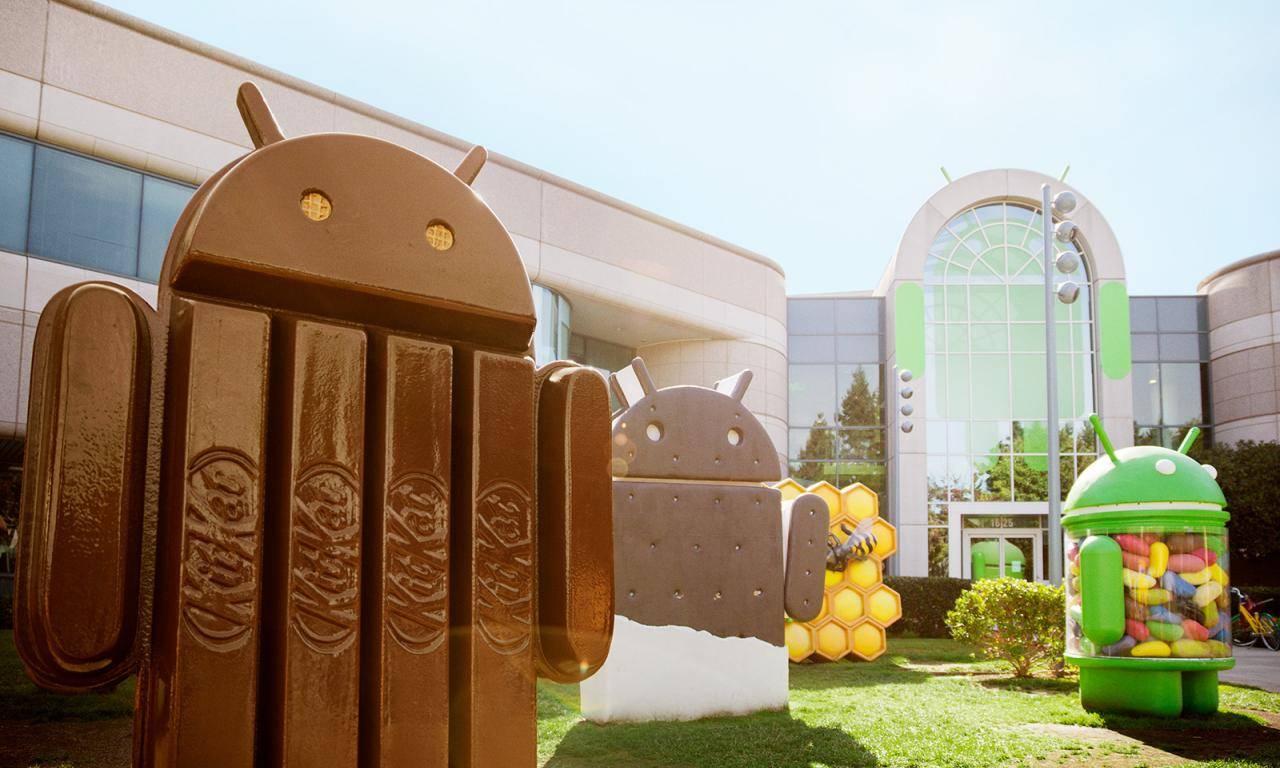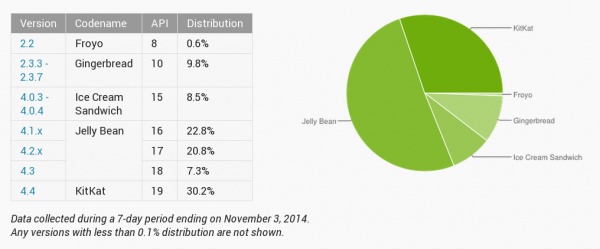
You might have noticed that Google didn’t release any figures for Android’s spread last October. Perhaps it was due to the busy-ness of getting Android 5.0 and the new Nexus devices out the door. Or perhaps there is some more nefarious reason. Whatever those were, this month’s numbers are up and, unsurprisingly, KitKat continues to rise while others continue to fall. Surprisingly, Android 4.2 seems to be unwilling to give up its hold in the market just yet.
Considering we skipped a month, it’s not extraordinary to see Android 4.4 make a 5.7 percent jump, which averages out to around 2.5 percent in two months. That’s nothing compared to the sudden 5.1 percent climb it made in June. Big or small, it shows a steady and strong adoption of Android KitKat in the market, which we expect to continue in the months ahead even after the release of Android 5.0 Lollipop.
As for the other Android versions, all show a steady downward trend except one. Android 4.2 Jelly Bean, of all the Jelly Bean releases, continues to rise, even if only so slightly, from 20.70 percent to 20.80 percent in two months. It is slightly strange considering it isn’t even the latest Jelly Bean. We are also quite close to saying goodbye to another Android version. Android 2.2 Froyo is now at 0.60 percent only, quite close to the 0.10 percent marker that Google has for removing versions from its charts.

Of course, Android Lollipop is still missing from the picture, considering that the limited number of Nexus 9’s aren’t even enough for it to reach the needed 0.1 percent. It will be interesting to observe adoption of this version once it fully rolls out. Unlike Android 4.4, Lollipop is a more significant change, a big break from previous Android releases both under the hood and in design. While that may be good for the Android ecosystem as a whole, it might also hamper porting to existing devices or even the release of new ones with Android 5.0 shipping by default. Hopefully, though, OEMs will take it up more quickly than other releases to further help address the often cited problem of fragmentation.
SOURCE: Google









